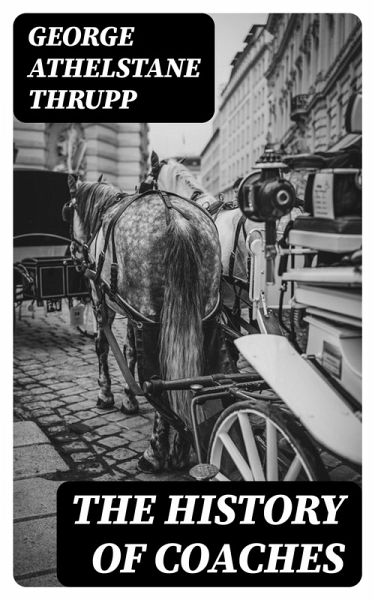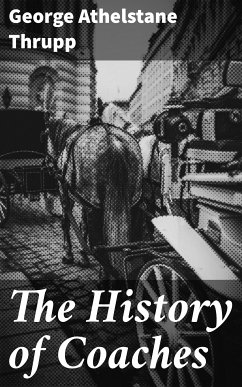
The History of Coaches (eBook, ePUB)
Versandkostenfrei!
Sofort per Download lieferbar
1,99 €
inkl. MwSt.
Weitere Ausgaben:

PAYBACK Punkte
0 °P sammeln!
In "The History of Coaches," George Athelstane Thrupp presents a meticulous exploration of the evolution of coach travel, documenting its significance in societal transformation and mobility. Thrupp's literary style is characterized by a blend of rigorous historical analysis and engaging narrative, making intricate details accessible to a broad readership. The book finds its context amid the burgeoning interest in transportation systems during the early Victorian era, reflecting a society increasingly fascinated by mechanization and movement. Thrupp delves into the construction, design, and cu...
In "The History of Coaches," George Athelstane Thrupp presents a meticulous exploration of the evolution of coach travel, documenting its significance in societal transformation and mobility. Thrupp's literary style is characterized by a blend of rigorous historical analysis and engaging narrative, making intricate details accessible to a broad readership. The book finds its context amid the burgeoning interest in transportation systems during the early Victorian era, reflecting a society increasingly fascinated by mechanization and movement. Thrupp delves into the construction, design, and cultural implications of coaches, drawing on a rich array of sources to substantiate his observations. George Athelstane Thrupp, a notable figure in early 19th-century literature, had a profound interest in the intersection of technology and society, which shaped his scholarship. His meticulous attention to detail and dedication to historical accuracy can be traced back to his academic pursuits and private passions for travel and engineering. Thrupp's deep-seated appreciation for the rapid changes of his time is evident throughout his work, revealing both personal and societal narratives. This book is highly recommended for historians, transportation enthusiasts, and anyone intrigued by the cultural evolution prompted by advancements in travel. Thrupp's comprehensive insights render "The History of Coaches" an essential addition to the library of those who seek to understand the intricate web of history interwoven with the art of transportation.
Dieser Download kann aus rechtlichen Gründen nur mit Rechnungsadresse in A, B, BG, CY, CZ, D, DK, EW, E, FIN, F, GR, H, IRL, I, LT, L, LR, M, NL, PL, P, R, S, SLO, SK ausgeliefert werden.













